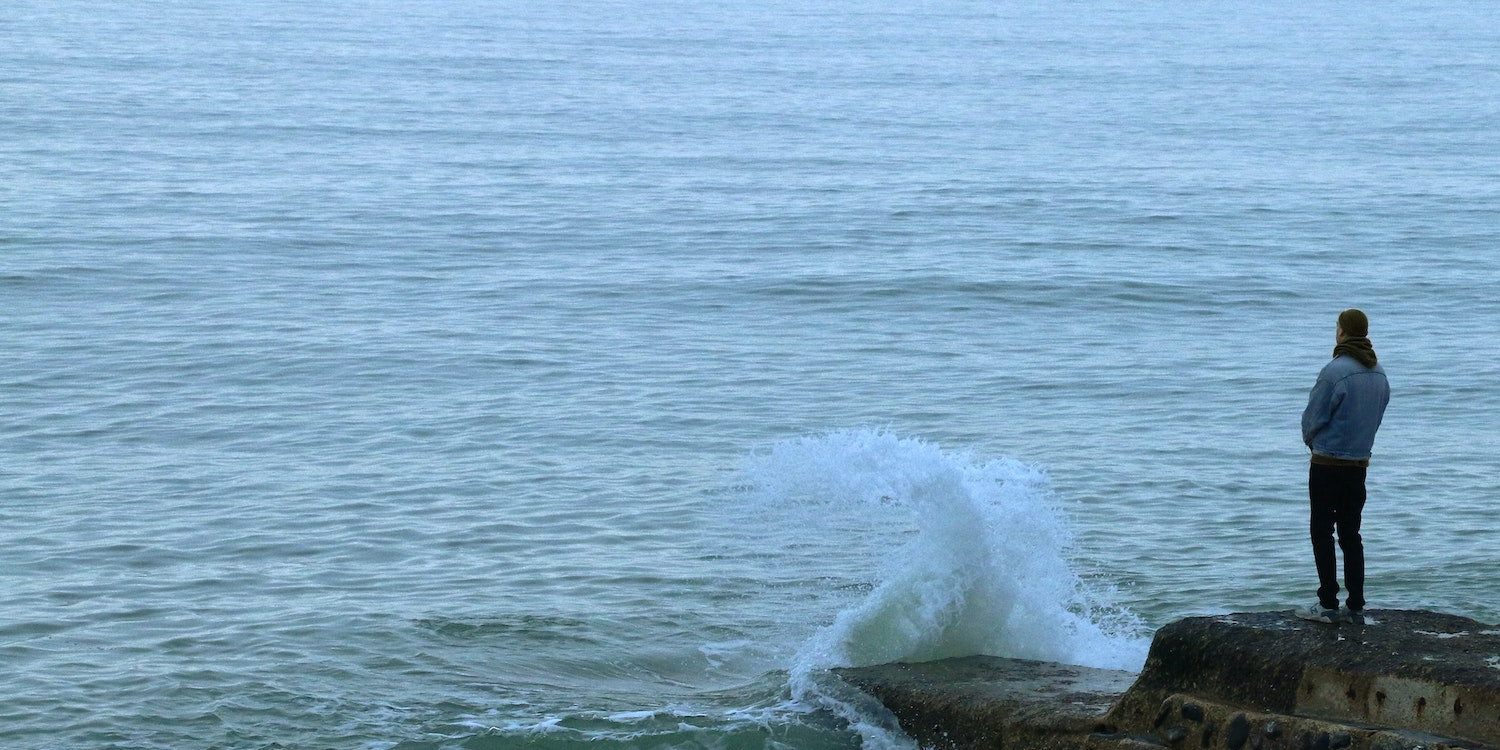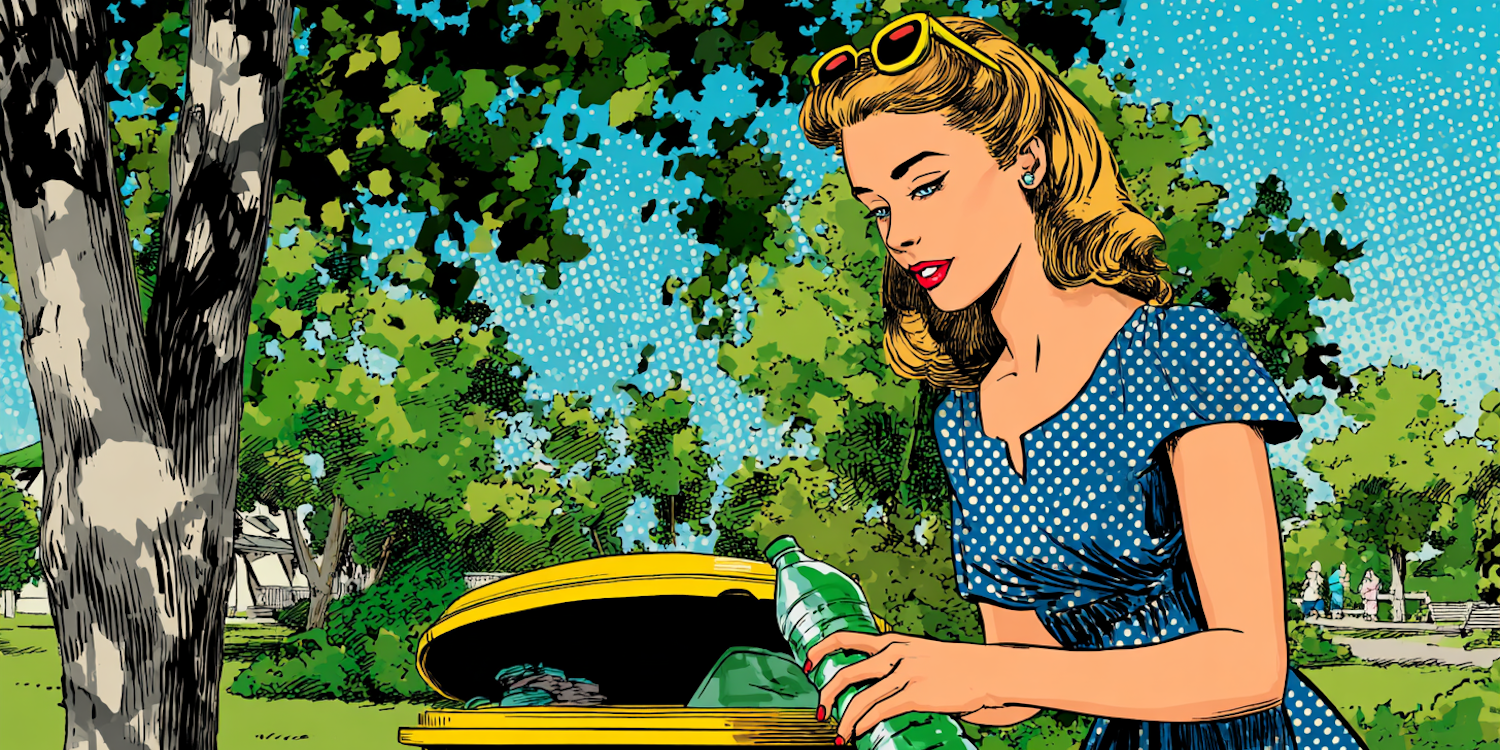As climate change progresses, apocalyptic headlines about ravaging fires, rising temperatures, droughts and floods are becoming more and more common. In the last few years alone, the environmental crisis seems to have seeped into everything – the news, social media, and everyday conversation. For some of us, there are even tangible changes in our surroundings that make it difficult to look away.
This can feel both frightening and overwhelming. In fact, in 2018 around 70% of people in the US admitted to worrying about climate change, and 51% reported feeling helpless in the face of the environmental crisis.
In other words, a huge portion of the population is experiencing eco-anxiety. Are you one of them?
What is Eco Anxiety?
Eco anxiety refers to deep, debilitating worry about the impact of climate change on our present and future. These anxious thoughts sometimes surround changes for society and the planet at large, and sometimes focus on the direct impact on our close community, family and individual futures.
But what’s characteristic for eco-anxiety is a general sense of helplessness at the thought of climate change, and a loss of control over the future.
Eco anxiety refers to deep, debilitating worry about the impact of climate change on our present and future.
It’s important to understand that while eco anxiety is a term used within therapy and psychology, it’s not recognized as a separate condition. Instead, it’s treated like general anxiety, but there’s ongoing research about how to treat eco anxiety specifically to better help those who experience it.
What Causes Eco Anxiety?
Eco anxiety is a broad term, and it can be experienced in various ways by different people. But generally, there are three main causes of eco anxiety.
Lived Experience
The most severe cases of eco anxiety often come from lived experience. People that have experienced extreme weather or climate catastrophes like disruptive storms, bushfires, or floods can develop both PTSD and eco anxiety afterward, as these incidents can be both life-threatening and take a long time to rebuild from.
In 2018, around 70% of people in the US admitted to worrying about climate change, and 51% reported feeling helpless in the face of the environmental crisis.
Some areas of the world are also more exposed to environmental changes than others, and in these places it’s common for people to be more anxious about climate change. Farmers that need to relocate because of declining harvests and worsening growing conditions, for example, feel a direct impact on their lives and livelihoods due to the slow shifts we’re seeing around the world.
Media and News
A globalized world comes with many beautiful encounters and opportunities. But social media and news are fast-reacting forums, where the most extreme headlines and news tend to get the most attention. These days, you're almost guaranteed to be flashed with apocalyptic headlines the moment you open your news app.
For many of us, this constant stream of bad news is a first-class ticket to despair. After all, there’s rarely anything you can do. And it probably comes as no surprise that this helplessness in the face of catastrophic news is a cause for anxiety.
Shame Over Your Own Impact
Another common cause of eco anxiety is feeling ashamed over your own impact on the planet. None of us are perfect, and despite knowing about the imminent crisis, most of us still find ourselves taking the car or buying plastic water bottles every now and then.
Feeling ashamed of yourself and your lifestyle can contribute to eco anxiety. It can make you second-guess every little choice you make during your day, until the climate crisis is everywhere all at once. These constant reminders can make you feel like you’re not doing enough, or that you’re part of the problem – even though you’re doing your best.
For many, this causes anxiety and a feeling of helplessness and shame that’s difficult to escape.
Is Eco Anxiety Normal?
Eco anxiety is becoming more and more common, and it can be experienced by anyone – although studies show it’s more common in young people and those directly impacted by environmental changes.
Ironically, one of the main things that set eco anxiety apart from other types of anxiety is that in some ways, it’s actually justified.
Anxiety, after all, has a biological purpose. As part of our survival instinct, anxiety warns us of danger so that we can act before it’s too late to escape situations that could pose a threat to our health.
Eco anxiety is becoming more and more common, and it can be experienced by anyone.
Most people who suffer from various forms of anxiety find themselves worrying about things that are unlikely to ever happen, or to a degree that isn’t warranted. But the changing climate is a serious threat that will impact our planet and species. And some argue that because of this, eco anxiety is actually a rational reaction.
So yes – eco anxiety is increasingly common, and could be argued to be rational in the face of our changing climate. But this doesn’t necessarily mean it’s healthy or good for us.
While temporary anxiety can help us to get out of dangerous situations, long-term anxiety instead breaks us down and impacts our mental health negatively. And because so much of climate change is out of our hands, the anxious feelings can’t fulfill their purpose and tend to just linger and deepen over time.
How Do I Know If I Have Eco Anxiety?
Fear, frustration, sadness and worry are normal reactions to situations out of our control. In fact, feeling these things is part of working through and moving on from difficult things.
So, how do you know if what you’re experiencing are normal, healthy reactions to the climate crisis, or if your anxiety about climate change is something you should seek support for?
As we mentioned, there is no medical definition for eco anxiety. But there’s a crucial difference between healthy negative emotions and anxiety that needs medical attention – and the key difference is, are the feelings passing?
Do you find yourself easily triggered into negative or anxious thoughts about climate change on a daily basis? Do you find yourself constantly aware of your choices and their impact on the planet, followed by shame or guilt? Do you find it difficult to envision the future without feeling fear, dread, frustration, or grief?
If the feelings persist and consistently come up, with no signs of going away or easing up, it’s a good idea to seek a professional support.
5 Strategies to Relieve Eco Anxiety:
There are of course things you can do on your own to ease and manage eco anxiety. So below are 5 tips that could help you cope with anxiousness about the future and our planet.
1. Set Boundaries Around Media and News
News and media don’t give a nuanced image of the climate crisis. While the media’s purpose may have originally been to inform, today many of our news outlets are driven just as much by commercial interests. Headlines are designed to draw you in, by triggering your flight or fight instinct. This means a heavy negativity bias and big, scary words.
It’s true – there are many worrying things happening around the world, and we shouldn’t ignore them. But there are good things happening, too. Scientists are making breakthroughs, communities come together to implement positive solutions, and organizations and activists are pushing for protective laws and regulations. Still, we rarely hear of these things in mainstream media.
There’s a plethora of newsletters, social media accounts and entire news channels out there focused solely on reporting the good happening for our world.
If news and media are negatively impacting you, try setting boundaries for when, where, and how you keep yourself updated. Maybe you don’t have to check your news app multiple times per day – perhaps once a week is enough.
It’s also more than worth it to seek out good planet news – today, there’s a plethora of newsletters, social media accounts and entire news channels focused solely on reporting the good happening for our world. These are great for getting a more nuanced understanding of what’s happening with our planet, and to balance out all the negative reports. Some of our favorites include Good Planet News, Earth Wins, and Good News Good Planet.
2. Try Anxiety-Reducing Techniques
Anxiety is not just a state of mind – it’s also a physical reaction. When anxious, your body releases stress hormones and cortisol, and your breathing and heartbeat accelerates.
Calming your physical state can help you to cope with anxiety. Breathing techniques, exercising (which releases feel-good hormones in your body), and working actively to counter negativity with optimism are some common ways to do this.
Now, these things may be easier said than done, but they have been proven effective time and again.
3. Spend Time in Nature
Spending time in nature has a positive, calming effect on human beings. Studies have shown that even a short walk in your local park can lower your stress levels and lift your mood, not to speak of what a little sunshine on your skin or a couple of hours of unplugging can do. Even just looking at pictures of nature can lift our spirits.
Besides, many people who experience eco anxiety feel deeply rooted in the natural world – but the eco anxiety can forge a negative association to nature. By going outdoors to enjoy what’s around you, you can combat this and reforge that positive bond.
4. Allow for Grief and Self-Compassion
The climate is changing, and there’s still time to avoid the worst of it. But it’s also true that we’ve reached a point where we can’t recover everything, and over the coming decades we will see loss of natural areas and species, and our environments will change around us.
If you feel connected to the natural world, you’ll feel this loss deeply. And in truth, there is no burden heavier than grief we keep tucked inside. So, on days when bad news reach you, let yourself to react and speak about it if you can. What you’re feeling is natural – and you may be surprised by just how many people around you feel the same way.
5. Take Action
Channeling negative feelings into action can be a great way to turn your anxiety into something you can feel good about – especially if your eco anxiety is rooted in guilt over not doing enough.
Joining in with others to make a difference can also be a wonderful way to remind ourselves of how much good is happening in the world. That in every community, every town and city, there are people doing what they can to change the world for the better – even if it’s just their corner of it.
And connecting with like minded people, who understand your worries and share them, is one of the best ways to process what you’re going through and not feel so alone.
We hope some of these tips were useful. If you want to stay connected to other planet friends, sign up to our newsletter below, where we share good planet news and ways to lower your environmental impact every week!
Psst… Is zero waste living really that expensive? Get our best tips for going planet-friendly on a budget here!






